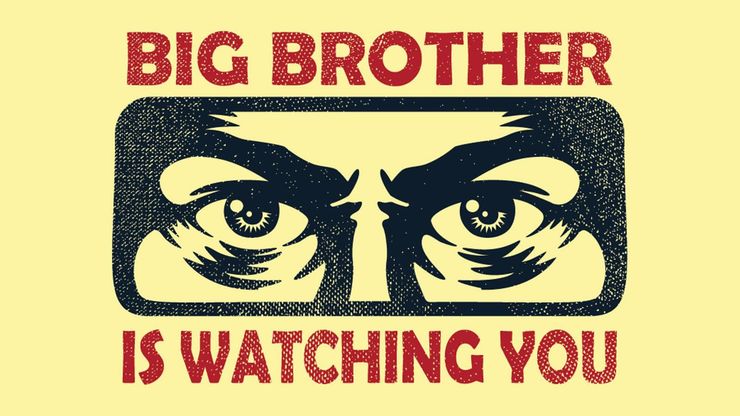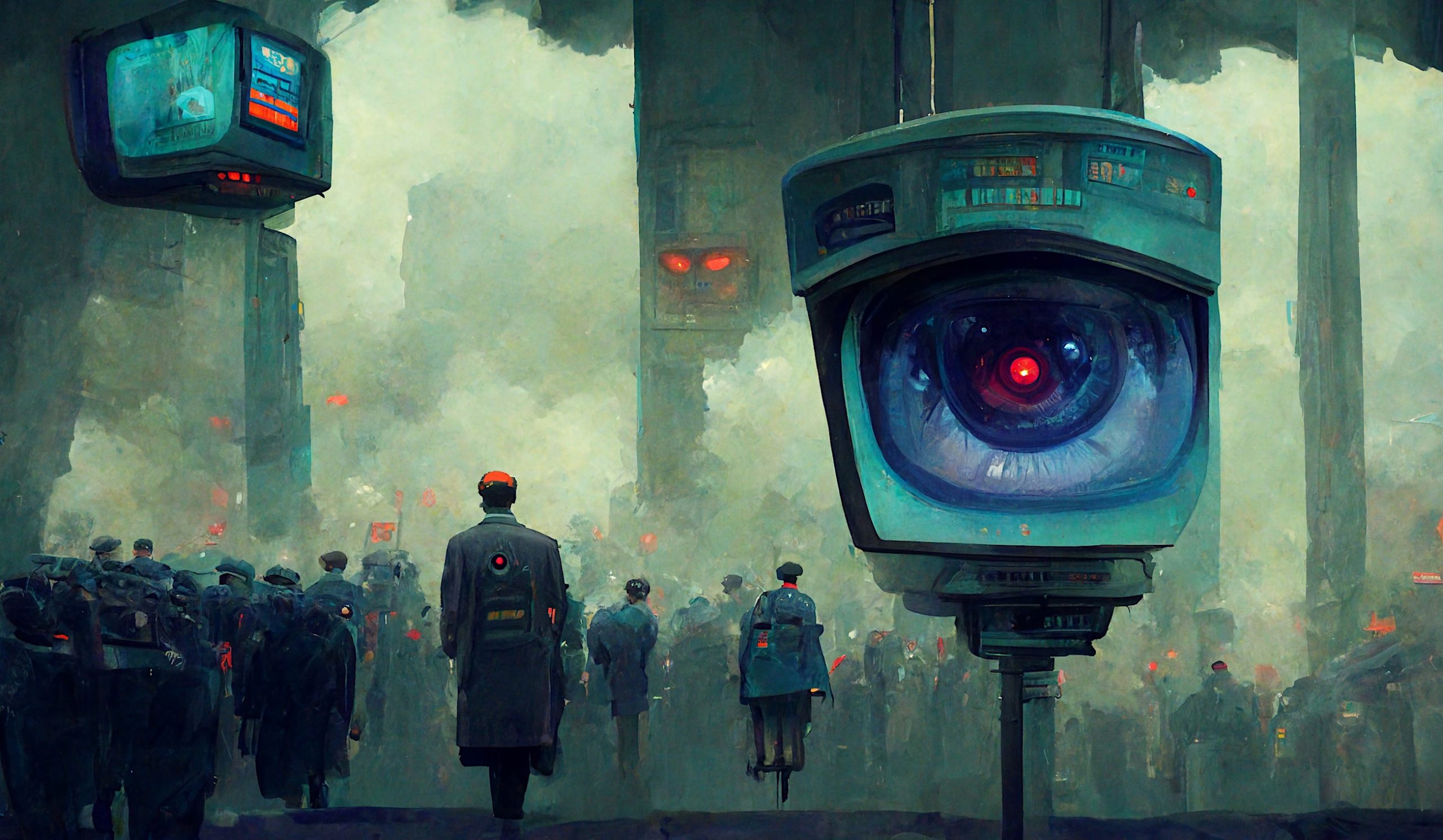June 22, 2023 by Anna
Category English 10 | Tags: 1984documentary | No Comments
June 5, 2023 by Anna
Category English 10 | Tags: characterweb1984 | No Comments
May 30, 2023 by Anna
George Orwell’s novel “1984” contains a lot of characterization, both direct and indirect. Characterization is the description of a character’s thoughts, physical appearance, personality, and point of view throughout fictional writing. There are 2 types of characterization, direct and indirect, direct is where the author tells you about the character in a direct and straightforward way. An example where Winston Smith is described directly is, “The terror that Winston already felt was suddenly shot through by a streak of ordinary embarrassment” (Orwell 214). That quote from the book reveals that Winston is terrified of meeting O’Brien but to add to that terror it tells the reader he is also embarrassed, those are two of many direct emotions given in the book. The second type of characterization is indirect, indirect is where the author reveals something about the character without directly saying it. An example of indirect characterization in the novel, “Winston’s heart was thumping so hard that he doubted whether he would be able to speak” (Orwell 212). This example implies that Winston nervous since his heart is thumping, but never actually says it. In conclusion, George Orwell’s novel “1984” displays a wide range of direct and indirect characterization techniques, revealing the complex personalities of its characters through both direct and indirect descriptions.
Category English 10 | Tags: characterizationpractice | No Comments
May 26, 2023 by Anna
The setting of a book is the time and place the story is told and the book “1984” written by George Orwell, explains the setting effectively. There are two types of settings, there’s physical setting and emotional setting. Physical is the time, date, location, physical features, weather, and adjectives given in the book. The emotional setting is the mood and what mood the adjectives in the book give off. An example of a mood from the book is, “Roared out by hundreds of voices to the tramp of marching feet, it was terrifying” (Orwell 159). The adjectives screamed, marching feet, and frightened reveal the mood of this sentence, which is chaotic, bustling, and ominous. An example of a physical setting is in the book, “The June sun was still high in the sky, and in the sun-filled court below, a monstrous woman, solid as a Norman pillar…” (Orwell 147). This sentence shows that it is daytime and lets the reader imagine a courtyard with the sun glaring down on it. These are 2 of many examples of emotional and physical settings in the book “1984” since throughout the whole book there are always indications of the setting.
Category English 10 | Tags: settingchapter5 | No Comments
May 25, 2023 by Anna
Category English 10 | Tags: 1984propaganda | No Comments
May 18, 2023 by Anna
 Loading...
Loading...
Category English 10 | Tags: symbols1984 | No Comments
May 16, 2023 by Anna
In the book “1984” propaganda is everywhere, from the novel to the movie. Even the book is set in a time when there was propaganda all over the streets. Propaganda is a type of message, advertising, or news aimed at influencing the opinions or behavior of people, rather than impartially providing information. The novel uses many types of propaganda techniques but the ones I see most of are deification, fear, and bandwagon. Deification is used by big brother as he is portrayed as this god figure that everybody needs to look up to, and if you don’t follow the rules he has put into place something bad could happen to you which is where fear comes in. The thought police and big brother cause fear for everyone, knowing they are always watching makes citizens of Oceania fear anything they do. This is why Winston burned the paper showing proof that Jones, Aaronson, and Rutherford were innocent; he was too afraid he would be caught by the telescreen. An example of bandwagon propaganda in this book is when Winston participated in the 2 minutes of hate even though he did not agree with what he was yelling, but because everyone else was yelling he joined in too. There are many more examples of propaganda in the book “1984” but these were the most prominent.

Category English 10 | Tags: Propagandain1984 | No Comments
May 9, 2023 by Anna
Winston Smith
Winston Smith, the main character of the book “1984” works in the minister of truth department. He is a thin and frail man who’s about 40-ish years old with a varicose vein above his right ankle which gave him trouble walking.
Early on in the book Winston shows how much he dislikes many women because he cannot have them as they are too young and pretty for him, because of this he wishes he can rape and kill this one-woman named Julia because she has a red ribbon tied around her waist which indicates she doesn’t engage in sexual activity.
Winston is a curious man who follows the rules of Big Brother as most people in Oceania do, he is no different from everyone else. But he does seem to question Big Brother’s ways just like his mother and father did before they died when he was 9 in a purge, since then he has been parentless.
The more you read into the book Winston shows more and more discontentment towards Big Brother, “Suddenly he began writing in sheer panic, only imperfectly aware of what he was setting down” (Orwell 2023).
Winston is a strange character at the start, but I hope his reasonings makes more sense as we read the story.
Category English 10 | Tags: winston1984 | No Comments
May 3, 2023 by Anna
Why Did George Orwell Write “1984”?
In 1945, at the end of WWII, George Orwell wrote a book called 1984. It tells the story of the main character Winston Smith and his life in a totalitarian government-controlled world where the thoughts, actions, and even emotions of its citizens are controlled. WWII had just ended when he wrote the book and Orwell had witnessed horrible violence at the hands of authoritative rulers, this frustrated him since he was a democratic socialist. All that lead him to write 1984, he wanted the book to be a warning for what could come if these countries were to continue this behavior. This book covers many different topics and interesting perspectives and looks like a fun read.

Category English 10 | Tags: Why1984 | No Comments
April 25, 2023 by Anna
Category English 10 | Tags: POVmedia | No Comments